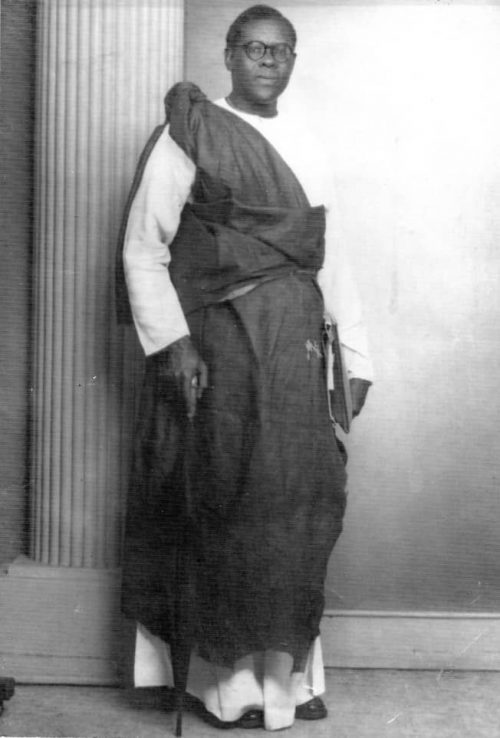The government has described the late Ignatius Kangave Musaaze as the father of cooperatives, whose nationalistic traits brought a lot of positive changes in pre-independence Uganda.
Musaazi, who passed away in 1990 is one of only two national heroes buried at the Kololo national heroes’ cemetery and is widely acknowledged as the founding father of Uganda’s Independence Movement.
He is among other things credited with founding Uganda’s first national political party – the Uganda National Congress (UNC) from which sprung present-day Uganda People’s Congress in 1961, and the first trade union – Uganda Motor Drivers Association, which later metamorphosed into the Uganda Amalgamated Transport and General Workers Union. The two are credited for presenting the first organized challenge to the colonial administration.
In 2007, the Musaazi family with support from Government set up the 1.K Musaazi Foundation to help immortalize Musaazi’s memory, consequently starting the I.K.Musaazi memorial lecturers that have since 2016 become an annual calendar event jointly organized with the Uhuru Institute for Social Development.
This year, celebrations will involve a week-long set of activities that will start with thanks-giving prayers at Namirembe cathedral on Monday 30th September 2019, and conclude with a memorial lecture, a fundraising dinner and the launch of a book, “Musaazi and the Early Struggle for Freedom and Unity” by Prof. George Shepherd at the Uganda Museum on Saturday, 5th October 2019.
During the course of the week, there will also be engagements with Cooperative Society and labor Union leaders, a nationwide screening of the Musaazi Documentary on all Vision Group affiliate Television Stations, and the annual I.K.Musaazi memorial lecture that will be hosted alongside fundraising dinner on Friday, to be presided over by President Museveni.
Leonard Okello, the Chief Executive Officer of the Uhuru Institute for Social Development told theCooperator that funds raised from the dinner will be used to set up the I.K Musaazi Innovations Institute, to serve as a leadership and innovation think tank inculcating cooperatives ideology among workers and cooperators across the country.
Addressing the media on the week-long activities at the Uganda Media Center on Wednesday, second deputy Prime Minister in charge of the East African Community Affairs Hon. Kirunda Kivejinja applauded Musaazi, noting that despite hailing from a rich family and attending elite schools, Musazi identified with ordinary citizens and fought sectarianism.
‘Musaazi left the comfort of government employment to lead and attract educated Ugandans into the cooperative movement. He traveled around the countryside organizing peasants into cooperative groups at every parish,’ Kivenjinja said.
Besides forming the first trade union, Musazi also formed the Uganda African Farmers Union with the aim of aggregating farmers’ issues and advocating for them with one voice before the colonial authorities.
Elizabeth Musazi, the daughter of the late I.K Musazi said although the name of her father isn’t talked often, he is one of the first black nationalists who lit up the African struggle for self-rule, which led to the final decolonization of the continent.
Who is Ignatius Kangave Musazi?
Born on 8 August 1905 to a Gombolola chief in Timuna village near Wobulenzi, off present-day Kampala-Gulu highway, Musazi was the eldest of nine brothers and thirteen sisters. He attended Mengo Senior School and King’s College Budo for his secondary education, before traveling to England for further studies.
Despite his affluent upbringing and a desire to become a priest that saw him spend several years in a theology college, Musazi changed his mind for political activism, after learning from his West African colleagues that liberation for the African peasant could only be achieved on a political platform, and not in the pulpit.
He went on to organize Ugandan peasants and elites through cooperatives and trade unions, founding the Uganda National Congress (UNC) – the first truly Ugandan nationwide political party in 1952. He died on October 20, 1990.
